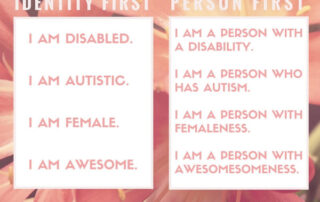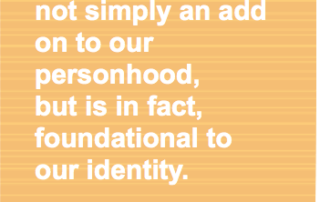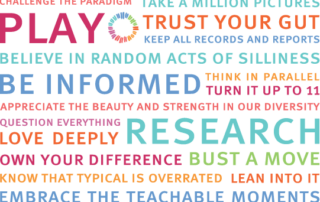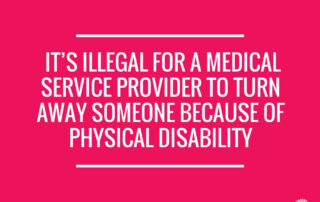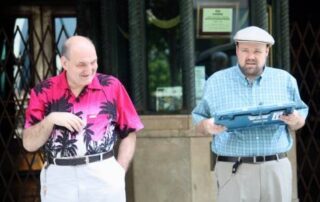Person First Language and Ableism
by Amy Sequenzia If you are not Disabled and you are demanding the use of Person First Language (PFL), you are being ableist. If you are Disabled and you are demanding that other Disabled people use Person First Language, you are being ableist. If you are Disabled and want to use Person First Language when referring to yourself, I will respect that. I will also respect your right to demand that other people use Person First Language when referring to you. But the Person First Language concept is ableist, and I can tell you why. I do know the
Cry Me a River, Katrina Percy. Justice for LB!
I originally wrote this piece for the blog 107daysofaction.wordpress.com. I asked for permission to reprint it to help raise awareness on this side of the Atlantic about the story. If you'd like to get involved with Justice for LB and 107 Days of Action, please click here. I've recently been made aware of the story of the death of a young autistic man in the UK that's not getting any press that I'm aware of in the U.S. or Canada. I'd like to tell you Connor Sparrowhawk's story. Connor Sparrowhawk, known as "Laughing Boy" or "LB" to his friends and
FDA Advisory Panel Recommends Banning Aversive Shock Therapy at the Judge Rotenberg Center
Thursday, April 24, was a day that I'd been waiting for that day for a long time. An FDA advisory panel finally got to thoroughly hear both sides of the story of what goes on at the Judge Rotenberg Center, and to deliberate, based on testimony, whether what happens to the students there needs to be stopped. And they made the right decision. I just hope that they act on it quickly. I found out about the Judge Rotenberg Center by accident two years ago, doing some research for another post on my blog. I came across an article about
Autism, Accommodation, and Double Standards
There are some particularly insidious double standards at work here. It's time to put an end to them.
Musings of An Autism Outsider: Realizing How Much I Didn’t Know
I felt like an outsider taking first steps into a world that I hadn’t realized existed. An autism outsider.
How to Figure Out If an Autistic Needs Fixing
I have autism. I am autistic. Both these statements describe me and both are true. However, these two statements are NOT equal.
An Open Letter to Suzanne Wright, Co-Founder, Autism Speaks
Over the years, though, we have learned that war is no longer a useful metaphor to invoke and apply in the disability community. People with autism, or for that matter other developmental disabilities, are not victims of the predations of some evil actor, nor are their mothers, fathers, sisters and brothers. Instead, we appreciate, as stated in the Developmental Disabilities Act, that “disability is a natural part of the human experience.” Unfortunately, your description of children with autism and their families is polarizing and divisive, creating rifts within a community that can ill afford it in these perilous times. Characterizing
Person First Attitude Trumps Language
Am I a person with autism or autistic? Does it matter? And why?
People With Disabilities Practically Absent from Marketing Campaigns
ABC.com reports that despite sporadic appearances in the media and marketing campaigns, people with disabilities are still largely absent, and that many people feel that marketers in particular are losing out because of it. Blaming the absence of people with disabilities in marketing campaigns on "a combination of ignorance, caution, and fear," advocates feel that a concentrated campaign to have people with disabilities included in advertising is necessary, similar to past campaigns to have minorities included in advertising. 57 000 000 Americans have a disability, and as a group their spending power is $200 to $500 billion. They're definitely a
Sarah Hendren Gives Familiar Symbol a New Look
Most people recognize the international symbol for disability: the stick figure seated in a partial circle, drawn in white on a blue background. Many feel that the symbol, which has come to be known as the International Wheelchair Icon, or the International Sign of Access needs a redesign. In 2011, Cambridge, Massachusetts resident Sarah Hendren decided to take on the challenge. “The figure is static, wooden, with the squared-off geometry of machinery. The body is synonymous with the chair,’’ she told The Boston Globe of the current access sign. She also talked about wanting her design to explore ideas of who is
Joe Flacco Pledges to No Longer Use the R-Word
Baltimore Ravens quarterback and Superbowl MVP Joe Flacco has made a commitment to no longer use the R-word, joined by teammates Ed Dickson and Gino Gradkowski. The three men signed the pledge not to use the R-word anymore from the Spread the Word to End the Word website on May 20 and had their photos taken with representatives from the Maryland Special Olympics. Flacco’s commitment to the movement to stop use of the R-word comes on the heels of using it during Superbowl week at a press conference. He apologized the next day, concerned that his “bad choice of words” would damage
Donna Posont’s “Birding-By-Ear” Course Allows Blind People to “See The Unseen”
Donna Posont is living proof that you don't have to be able to see well to go bird-watching. Donna Posont is a field guide in Michigan who leads a group of blind birdwatchers and helps them recognize birds through sound. / CBS News The Field Services Director for Opportunities Unlimited for the Blind, Donna Posont runs a "birding by ear" class in Dearborn, Michigan for people who are blind or who have low vision. Instruction begins inside, where participants memorize bird calls through learning words that have been assigned to birds' chirps and screeches. Armed with a repertoire of bird
Childhood Disability Rate Jumps Over 16% in Last Decade
According to findings presented at the Pediatric Academic Societies annual meeting, the prevalence of disability in children has jumped more than 16 percent in 10 years. The reason for this rise in disability prevalence is unclear, although, according to Disability Scoop, researchers believe it’s due to “increased diagnosis of neurodevelopmental and mental health conditions.” Researchers identified the rise in disability prevalence by comparing data from the National Health Interview Survey collected in 2009-2010 to those collected in 2001-2002. The National Health Interview Survey, conducted by the U.S. Centers for Disease Control and Prevention, is a poll of more than 100,000
Happy Mother’s Day Week : Turn It Up to 11
It's that time of year .... Mother's Day Week! Is there a song that makes you think about why you love being a mom? Or a song that just reminds you of your family? Share it here.
Shouldn’t New Disability Awareness Course Be Mandatory for Police?
Kudos to New York State for making train-the-trainer disability sensitivity training available to its law enforcement officers as of April 2013, with the stipulation that police officers that take the course must take it back to their respective police agencies. But why not make the training mandatory instead of just "available"? The First Responders Disability Awareness Training Course augments the very basic curriculum in disability sensitivity offered to New York state police officers as part of their core training: 14 hours on mental illness, but only two on autism, Alzheimer’s disease, and blindness and deafness , and none on intellectual
Doctors across America turning away patients with disabilities, study finds
by Sarah Levis Disabled people in several American cities are going without specialist care because of medical facilities that aren’t physically accessible, says a study that recently appeared in the Annals of Medicine. According to the Americans with Disabilities Act, it’s illegal for a medical service provider to turn away someone because of physical disability. Yet in Boston alone, more than one in six doctors refused to schedule appointments for people posing as patients in wheelchairs. Similar findings were reported in three other cities. The study reported similar findings in in Houston, Texas, Dallas, Texas, and Portland, Oregon. The study
Introducing Ollibean Change Leaders
Introducing Ollibean Change Leaders - comprised of the most innovative, passionate doers on the planet. Folks out there blazing a trail for the rest of us, leaders in advocacy, inclusive education, cutting edge medicine, technology, human rights, the arts, disability rights, and philanthropy. They are changing things for people of all abilities. They are the Einsteins, the Ghandis, the Martin Luther Kings, the Helen Kellers of our generation. You’ve probably heard of most of them, and if you haven’t, you will. We all have the power to create real change and make our world a better place, we just have to
Change Leader: Larry Bissonette
Our first Change Leader is artist and disability rights advocate, Larry Bissonnette. Larry's art, writing, presentations, and films are changing perceptions about disability around the world. His quote in Wretches & Jabberers, "More like you than not" says it all.
Faces of Ollibean- We want to hear from you!
Every week we put the spotlight on another person out there making a difference. Share your story and inspire and motivate others to Be the Change.
Douglas Biklen: “Begin by presuming competence”
"Presuming competence is nothing less than a Hippocratic oath for educators. " Douglas Biklen

